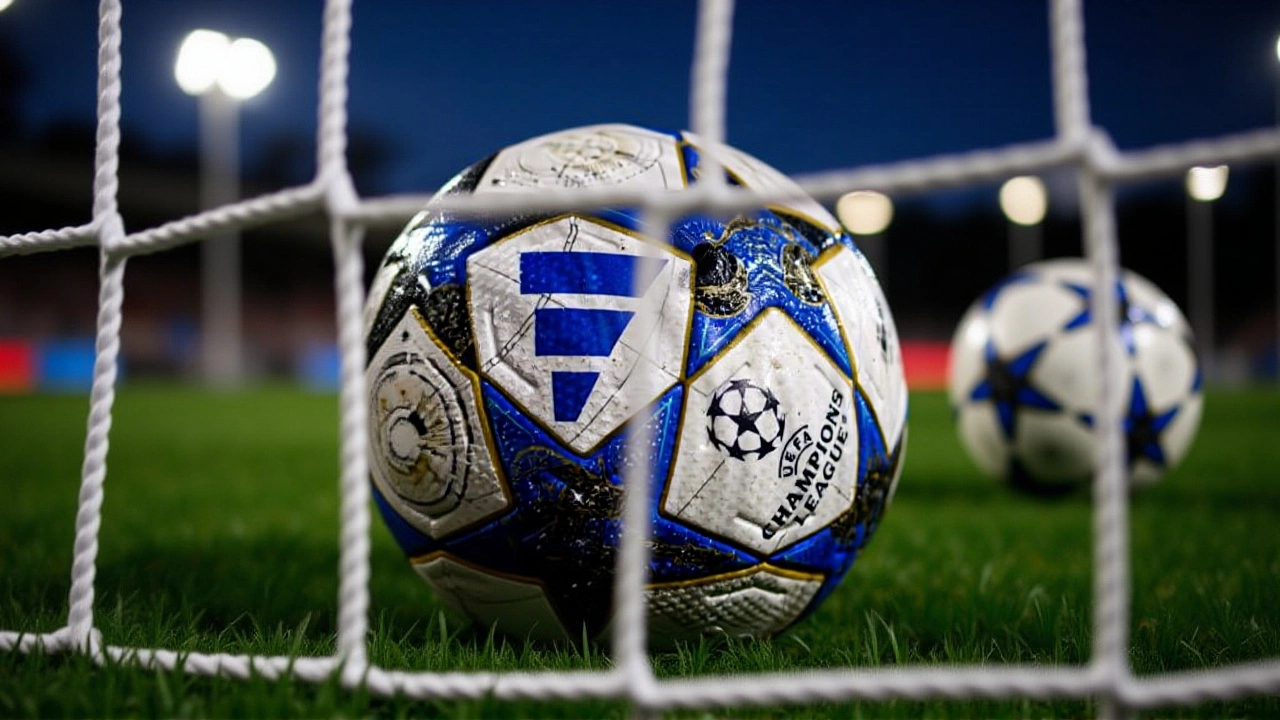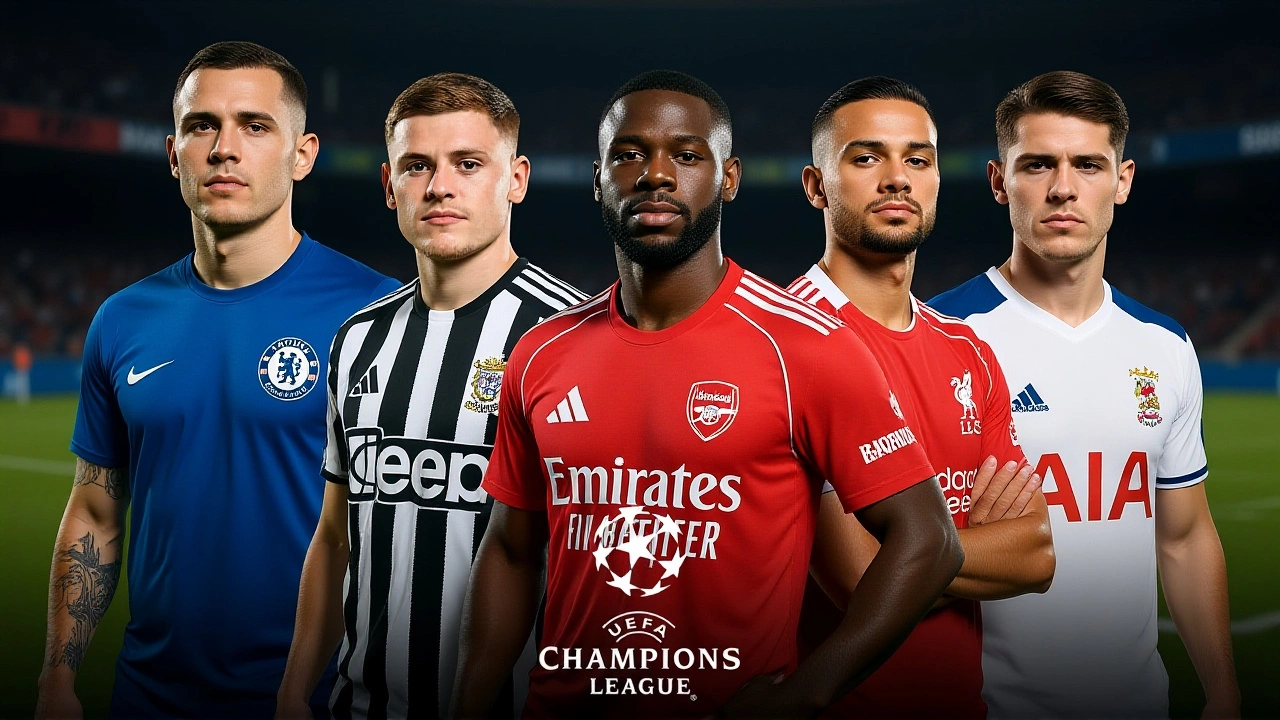Three giants of European football stand alone at the top of the UEFA Champions League table: Bayern Munich, Arsenal, and Inter Milan — all with perfect 4-0-0 records and 12 points each after four matches. It’s not just dominance; it’s precision. Arsenal hasn’t conceded a single goal. Bayern has outscored opponents 14-3. Inter, while slightly less explosive offensively, has matched their clean sheet discipline. And here’s the twist: they’re not just winning — they’re rewriting the script of the new 36-team league phase, introduced just last season.
The New Format, The New Rules
The UEFA Champions League isn’t what it used to be. Since 2024-25, the old group stage has vanished. In its place: a single, sprawling league table with 36 teams, each playing eight matches — four home, four away — against randomly drawn opponents. No more predictable groups. No more guaranteed rivals. Just pure, unfiltered survival. The top eight qualify directly for the Round of 16. Teams ranked 9-16 enter a two-legged play-off to earn their spot. The bottom 12? Done. No Europa League lifeline. No second chances. This isn’t just a tweak — it’s a revolution in high-stakes football.
Who’s Dominating — And Who’s Struggling
At the summit, the trio’s stats tell a story. Arsenal’s 11-0 goal difference isn’t just impressive — it’s historic. They’ve kept clean sheets in all four games, including a 3-0 win over Real Madrid in the early rounds. Bayern’s 14 goals? That’s the highest in the competition. Their attack, led by Harry Kane and Jamal Musiala, looks unstoppable. Inter? They’ve been clinical. A 2-0 win over Liverpool in Milan and a 1-0 away win at PSV Eindhoven show they don’t need fireworks — just discipline.
Behind them, the pack is tight. Manchester City sits fourth with 10 points, but their 1-0 loss to Bayer Leverkusen in September exposed cracks. Paris Saint-Germain, the defending champions after their 2024-25 breakthrough, are fifth with 9 points — but their +9 goal difference masks a shaky defense. Real Madrid and Liverpool are both at 9 points too, but neither has looked like a team destined for glory. Meanwhile, Ajax — five games played, zero wins, one goal scored, 16 conceded — are a cautionary tale of how quickly momentum can vanish.
The Fixtures That Could Change Everything
On November 26, 2025, the calendar doesn’t just turn — it explodes. The most anticipated match of the season so far: Arsenal vs. Bayern Munich. Two undefeated teams. One winner. One loser. The stakes? Not just bragging rights — but psychological dominance in the race for the top spot. A draw? That could open the door for Inter. A win for Arsenal? They’ll be seen as the team to beat. A win for Bayern? Their confidence will be unshakable.
Simultaneously, Atlético Madrid hosts Inter Milan. Diego Simeone’s side, sitting at 6 points, needs points. Inter? They can’t afford a slip. A loss here might be the first crack in their perfect record. And then there’s Liverpool vs. PSV Eindhoven — a match that could define whether Liverpool’s season is still alive or already slipping away.

Who’s in Danger — And Who’s Fighting for Survival
It’s not just the top that matters. The bottom is a minefield. Benfica and Ajax are winless. Villarreal, FC Copenhagen, and Kairat Almaty each have just one point. These teams aren’t just trailing — they’re staring at elimination. And with only four matches left, there’s no time for rebuilding. For clubs like Juventus and Marseille, stuck at three points, the dream of European glory is fading fast.
Meanwhile, Newcastle United and Galatasaray — both with 9 points from five games — are playing a dangerous game. They’ve outplayed their schedule, but every extra match is a risk. One slip now, and they could fall out of the top 16 and into the play-off trap.
What Comes Next
The league phase ends in January 2026. By then, the top eight will be locked in. The rest will fight for survival in the play-offs. But here’s what’s truly fascinating: the data suggests that early dominance doesn’t guarantee late success. In the 2024-25 season, Real Madrid was seventh after four matches — and went on to win the title. That’s the beauty — and the brutality — of this format. One bad week can bury you. One hot streak can resurrect you.
For fans, it’s chaos. For managers, it’s pressure. For the clubs at the top — Bayern, Arsenal, Inter — it’s an opportunity to etch their names into history. Not just as winners of the Champions League, but as pioneers of its most unpredictable format yet.
Frequently Asked Questions
How does the new 36-team format affect the chances of smaller clubs?
The expanded format gives more teams a chance to compete, but it also increases the risk of early elimination. Clubs like Bodø/Glimt and Kairat Almaty have played five matches but remain winless, highlighting how difficult it is to compete against elite sides without deep squads. Only the top eight avoid the play-offs — meaning even a 7-point team can be eliminated if they’re unlucky in scheduling.
Why do some teams have played five matches while others have only played four?
Match rescheduling due to weather, political unrest, or stadium conflicts has caused minor discrepancies. Teams like Newcastle United, Barcelona, and Ajax had games postponed earlier in the season and were rescheduled for November 25–26. UEFA allows this flexibility to ensure all teams complete their eight matches, but it creates temporary imbalances in the standings.
What happens if Arsenal beats Bayern Munich on November 26?
Arsenal would become the sole leader with 15 points, putting immense pressure on Bayern and Inter. A win would also mark the first time since the format’s inception that a team has defeated two other top-three sides in the same campaign — a psychological milestone. It would also signal that Arsenal, long seen as a rising force, may now be the team to beat in the final stretch.
Is Paris Saint-Germain still a serious contender despite their loss?
Yes — but only if they fix their defense. PSG has scored 14 goals in four games, but conceding five against Real Madrid and three against Atalanta reveals vulnerability. Their path to the top eight depends on winning their remaining home games, especially against Athletic Bilbao on December 10. If they can’t shut out mid-table teams, their title defense could collapse.
Who are the biggest surprises in the 2025-26 Champions League so far?
Bayer Leverkusen — unbeaten and in the top 10 — have outperformed expectations, defeating Manchester City and holding Bayern to a draw. Sporting CP and Atalanta are also punching above their weight. Meanwhile, Barcelona’s 12 goals scored but 10 conceded is a sign of chaos, not progress. Their 11th-place finish is a shock to many.
When will the knockout rounds begin?
The league phase ends in late January 2026. The knockout phase play-offs for teams ranked 9–16 will be held in February, followed by the Round of 16 in March. The quarterfinals begin in April, with the final scheduled for May 31, 2026, in Berlin. Every match from now until January will be critical — no margin for error.
